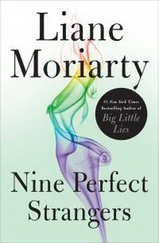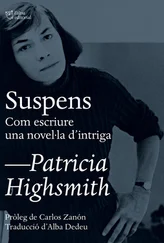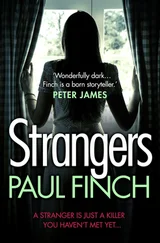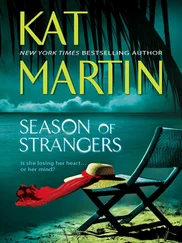“I have no great respect for the law,” he remembered he had said to Peter Wriggs in Metcalf two years ago. Why should he have respect for a statute that called him and Miriam man and wife? “I have no great respect for the church,” he had said sophomorishly to Peter at fifteen. Then, of course, he had meant the Metcalf Baptists. At seventeen, he had discovered God by himself. He had discovered God through his own awakening talents, and through a sense of unity of all the arts, and then of nature, finally of science—of all the creating and ordering forces in the world. He believed he could not have done his work without a belief in God. And where had his belief been when he murdered? He had forsaken God, not God him. It seemed to him that no human being had ever borne, or had needed to bear, so much guilt as he, and that he could not have borne it and lived unless his spirit was dead already, and what existed of himself now only a husk.
Awkwardly, he turned and faced his work table. A gasp hissed between his teeth, and nervously, impatiently, he passed his hand hard across his mouth. And yet, he felt, there was something still to come, still to be grasped, some severer punishment, some bitterer realization.
“I don’t suffer enough!” burst from him suddenly in a whisper. But why had he whispered? Was he ashamed? “I don’t suffer enough,” he said in a normal voice, glancing about him as if he expected some ear to hear him. And he would have shouted it, if he had not felt some element of pleading in it, and considered himself unworthy of pleading for anything, from anyone.
His new books, for instance, the beautiful new books he had bought today—he could still think about them, love them. Yet he felt he had left them there long ago on his -work table, like his own youth. He must go immediately and work, he thought. He had been commissioned to plan a hospital. He frowned at the little stack of notes he had already taken, spotlighted under his gooseneck lamp. Somehow it did not seem real that he had been commissioned. He would awaken soon and find that all these weeks had been a fantasy, a wishful dream. A hospital. Wasn’t a hospital more fitting than even a prison? He frowned puzzledly, knowing his mind had strayed wildly, that two weeks ago when he had begun the hospital interior he had not thought once of death, that the positive requisites of health and healing alone had occupied him. He hadn’t told Anne about the hospital, he remembered suddenly, that was why it seemed unreal. She was his glass of reality, not his work. But on the other hand, why hadn’t he told her?
He must go immediately and work, but he could feel in his legs now that frenzied energy that came every evening, that sent him out in the streets finally in a vain effort to spend it. The energy frightened him because he could find no task that would absorb it, and because he felt at times that the task might be his suicide. Yet very deep inside him, and very much against his own will, his roots still clung to life, and he sensed that suicide was a coward’s escape, a ruthless act against those who loved him.
He thought of his mother, and felt he could never let her embrace him again. He remembered her telling him that all men were equally good, because all men had souls and the soul was entirely good. Evil, she said, always came from externals. And so he had believed even months after Miriam, when he had wanted to murder her lover Steve. So he had believed even on the train, reading his Plato. In himself, the second horse of the charioteer had always been obedient as the first. But love and hate, he thought now, good and evil, lived side by side in the human heart, and not merely in differing proportions in one man and the next, but all good and all evil. One had merely to look for a little of either to find it all, one had merely to scratch the surface. All things had opposites close by, every decision a reason against it, every animal an animal that destroys it, the male the female, the positive the negative. The splitting of the atom was the only true destruction, the breaking of the universal law of oneness. Nothing could be without its opposite that was bound up with it. Could space exist in a building without objects that stopped it? Could energy exist without matter, or matter without energy? Matter and energy, the inert and the active, once considered opposites, were now known to be one.
And Bruno, he and Bruno. Each was what the other had not chosen to be, the cast-off self, what he thought he hated but perhaps in reality loved.
For a moment, he felt as if he might be mad. He thought, madness and genius often overlapped, too. But what mediocre lives most people lived! In middle waters, like most fish!
No, there was that duality permeating nature down to the tiny proton and electron within the tiniest atom. Science was now at work trying to split the electron, and perhaps it couldn’t because perhaps only an idea was behind it: the one and only truth, that the opposite is always present. Who knew whether an electron was matter or energy? Perhaps God and the Devil danced hand in hand around every single electron!
He threw his cigarette at the wastebasket and missed.
When he put out the stub in the basket, he saw a crumpled page on which he had written last night one of his guilt-crazed confessions. It dragged him up sickeningly to a present that assaulted him from all sides—Bruno, Anne, this room, this night, the conference with the Department of Hospitals tomorrow.
Toward midnight, when he felt drowsy, he left his work table and lay down carefully on his bed, not daring to undress lest he awaken himself again.
He dreamed that he woke up in the night to the sound of the slow, watchful breathing that he heard every night in his room as he tried to fall asleep. It came from outside his window now. Someone was climbing the house. A tall figure in a great cape like a bat’s wings sprang suddenly into the room.
“I’m here,” said the figure matter-offactly.
Guy jumped from his bed to fight him. “Who are you?” He saw it was Bruno.
Bruno resisted him rather than fought back. If Guy used his utmost strength, he could just pin Bruno’s shoulders to the floor, and always in the recurrent dream, Guy had to use his utmost strength. Guy held Bruno to the floor with his knees and strangled him, but Bruno kept grinning up at him as if he felt nothing.
“You,” Bruno answered finally.
Guy awakened heavy-headed and perspiring. He sat up higher, vigilantly guarding his empty room. There were slimily wet sounds in the room now, as of a snake crawling through the cement court below, slapping its moist coils against the walls. Then suddenly he recognized the sound as that of rain, a gentle, silvery summer rain, and sank back again on his pillow. He began to cry softly. He thought of the rain, rushing at a slant to the earth. It seemed to say: Where are the spring plants to water? Where is the new life that depends on me? Where is the green vine, Anne, as we saw love in our youth? he had written last night on the crumpled paper. The rain would find the new life awaiting it, depending on it. What fell in his court was only its excess. Where is the green vine, Anne…
He lay with his eyes open until the dawn eased its fingertips onto the sill, like the stranger who had sprung in. Like Bruno. Then he got up and turned on his lights, drew the shades, and went back to his work.
Twenty-nine
Guy slammed his foot on the brake pedal, but the car leapt, screaming, toward the child. There was a tinny clatter of the bicycle falling. Guy got out and ran around the car, banged his knee excruciatingly on the front bumper, and dragged the child up by his shoulders.
“I’m okay,” the little boy said.
“Is he all right, Guy?” Anne ran up, white as the child.
Читать дальше












